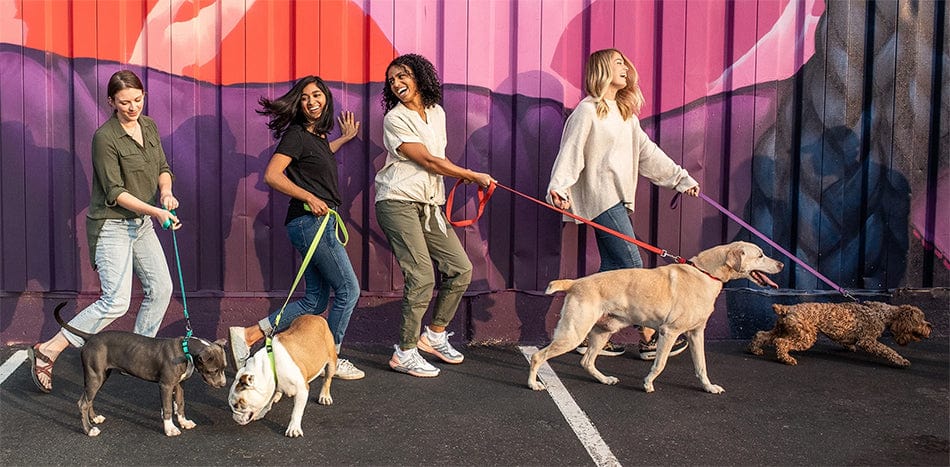Your cart is empty. Let's fix that!


Humans and dogs alike love a good snooze. Unlike humans, it’s perfectly normal for dogs to sleep the majority of the day with no specific sleep schedule. Dog sleep patterns differ from breed to breed and even dog to dog.
As a general rule, larger dogs tend to require more sleep. Age also plays a factor, and just like your grandma Gertrude, senior dogs need more snooze time. It’s difficult for dogs to oversleep, but if you are worried about your dog sleeping too much or acting too lethargic, there are a few things you can do.
Hydration & Nutrition
If your dog is dehydrated, this can cause them to become lethargic. Encourage them to drink more, sip sip hooray! Additionally, if your pup isn’t receiving proper nutrition from their food, it can cause their energy levels to decline. Just like humans can go into a carb coma, pups can get drowsy from food. To many owners, a dog sleeping a lot may be a cause for concern, but note that this isn’t always the case.
Age & Health
Older and sickly dogs tend to sleep more than healthy, young pups. It’s important to understand what is “normal” for your dog. Keep in mind that it’s imperative to keep puppies and new rescue dogs on a sleep schedule to establish good habits. As they become more settled, you can add flexibility to the schedule. If their behavior changes or they show signs of anxiety, like peeing on the floor, it’s recommended to go back to a stricter schedule.
To calculate how much sleep a puppy needs before they have to take a potty break, apply this formula: Count one hour for every month-old and add one. For example, if you have a three-month-old puppy, they can sleep for four hours before they need to go out. After nine or 10 months, many dogs can wait to relieve themselves for 10 to 12 hours. Cheers to postponing the pee-pee party!
It’s common for dogs to be bored and alone all day, especially if they are the only dog in the home. When you combine a long 8+ hour workday with the hours you spend sleeping, that’s likely the amount of time your dog is sleeping every day.
While you don’t need to set them up with their own Netflix account, it’s important to keep your fur baby entertained while you’re away. A great way to help your dog stay alert and active during the day is by providing them with pawzles (puzzle toys.) Ranging from the simple (rolling treats inside of a towel or an egg carton) to the high-tech, puzzle toys help keep your dog awake during the day. They are great for dogs to do alone or together, and don’t require human assistance. With the help of a dog camera, you can check to see if your pet is playing with the puzzle toys or ignoring them, even when you’re not home.
You can also break up the monotony of your dog’s day with midday walkies, and longer exercise sessions in the morning and evening.
There are a few red flags to look out for, and if you notice them, you should take your dog to be assessed by a veterinarian.
Before taking your dog into the vet, try to track your dog’s sleep patterns and symptoms. The vet will likely have lots of questions, and the more information you can provide, the better. Ensure that your dog is a healthy weight and that you give them enough activities to do during the day. If they continue to sleep an unusual amount, consider taking them to be assessed.